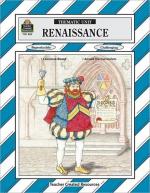|
This section contains 2,376 words (approx. 8 pages at 300 words per page) |

|
French mathematician and philosopher Rene Descartes (1596–1650) is considered by many to be the founder of modern philosophy. With his famous pronouncement, "I think, therefore I am," he broke from the medieval Scholastic tradition of philosophy, which interpreted everything through a classically Christian point of view. Although Descartes remained a devout Catholic his entire life, he adopted the Renaissance spirit of seeking truth for its own sake, regardless of the consequences on traditional beliefs.
Descartes' first work, The World,was nearly completed in 1633, when he heard that Italian astronomer Galileo Galilei (1564–1642) had been condemned as a heretic by the Vatican for endorsing Nicolaus Copernicus's (1473–1543) theory that the Earth was not the center of the universe. Descartes quietly withdrew efforts to publish his work, which also supported Copernicus. His most famous work, Discourse on Method (1637), begins with the...
|
This section contains 2,376 words (approx. 8 pages at 300 words per page) |

|




